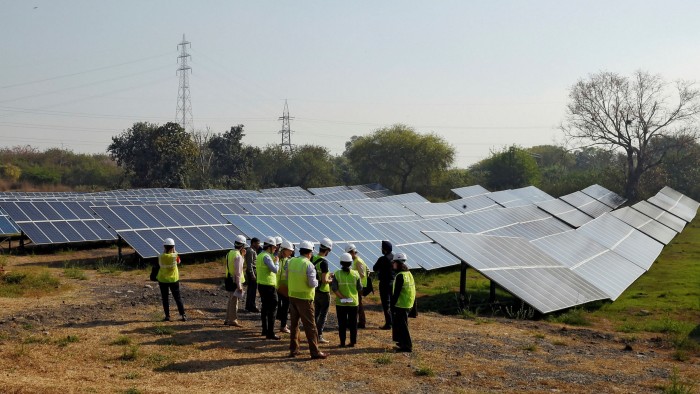US stock exchanges seek new listings as Chinese companies retreat

Roula Khalaf, Editor of the FT, selects her favourite stories in this weekly newsletter.
US stock exchanges are pursuing listings from companies in south-east Asia and India to counteract a sudden slowdown in business from China.
Asian companies based outside China have been largely absent from the US stock market. But they are getting a closer look as Sino-US tensions cause new Chinese listings to dry up and threaten revenue for the New York Stock Exchange and Nasdaq stock market.
“We think the entire region is ripe for IPO activity,” said Bob McCooey, Nasdaq’s Asia-Pacific chair.
“The pipeline has grown from a handful of companies, if you asked me a year ago, into a few dozen today,” McCooey told the Financial Times. Over time the region could become as big a source of business as China was until recently, he said.
The outlook for US initial public offerings from Chinese companies has soured in the past few months amid mutual recriminations over the sharing of sensitive data and a crackdown on large private companies by Beijing.
Insurance group FWD this week became the latest group to pull plans for a US flotation after warning about the risk of intervention from both Chinese and US regulators. Earlier this month Chinese ride-hailing group Didi Chuxing said it would delist from the NYSE just five months after completing one of the year’s largest IPOs.
Bringing in listings from other Asian countries would be a big change from recent trends. Chinese companies made more US IPOs in 2021 alone than companies from the rest of the Asia-Pacific region had done over the past decade, according to Refinitiv data.
Alex Ibrahim, NYSE’s head of international capital markets, said exchange officials had been “spending a lot of time focused on south-east Asia, more so than in previous years, and I think this will continue”.
Indonesia and India are seen as the biggest areas of opportunity because of their large populations and growth potential, although executives are also expecting an uptick in listings from countries including Vietnam and Malaysia.
The recent listing of Singapore-based tech group Grab, which completed the largest-ever merger with a special purpose acquisition company (Spac) at the start of December, has also helped draw renewed attention to the Asia-Pacific region outside of China.
Like China, India enforces restrictions that complicate local companies’ plans to list abroad. Just one India-based company, renewable energy operator Azure Power, has completed an IPO in the US over the past 10 years, according to Refinitiv.
Ibrahim acknowledged that there were some “regulatory constraints”, but said companies could be “creative” in finding ways to complete dual listings or reincorporating outside of India to list in the US.
Delhi-based software company Coforge, which is already listed in India, has filed for a public offering in New York expected to take place early next year. Bangalore-based online education start-up Byju’s is also in talks to combine with a US-listed Spac.
Jeff Bunzel, head of equity capital markets at Deutsche Bank, said: “We don’t anticipate much ‘China into US’ activity from an IPO point of view . . . [but] there is definitely an increase in the activity and outlook for India and south-east Asia into the US.”
Replacing the loss of Chinese listings, however, will be difficult. There are 80 so-called ‘unicorns’ — private companies worth more than $1bn — in the Asia-Pacific region outside China, according to CB Insights, But none has the scale of giants such as Alibaba, the Chinese ecommerce company that was worth $128bn when it went public in 2014.
Nor are US exchanges guaranteed to win all the biggest candidates. The $20bn Indonesian delivery group J&T, for example, is reportedly gearing up to list in Hong Kong.
Comments